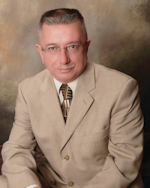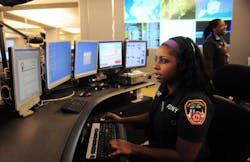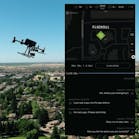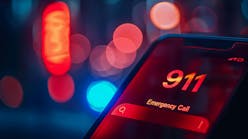12 Ways Fire/EMS Dispatchers Can Help During COVID-19 Responses
Editor's note: Find Firehouse.com's complete coverage of the COVID-19 pandemic here.
The outbreak of COVID-19 has created unprecedented challenges for the fire service around the world. While we witnessed elements of travel restrictions and public fear in the days that followed the Sept. 11 terror attacks, never in our lifetimes have we seen so many critical elements assemble this quickly and dramatically. After all, its been over a century since a pandemic of this size occurred.
Nowhere has the impact of the coronavirus been felt more sharply than in the dispatch center, with jurisdictions such as New York City reporting record numbers of 9-1-1 calls. However, despite bearing the brunt of real emergencies and increased public concern, dispatchers are also our first line of defense in the battle against this disease. Here are a dozen ways that they can help:
- Screen all calls requiring responder contact – not just medical calls – for symptoms of COVID-19. After consultation with your medical director, update your Emergency Medical Dispatch triage to reflect current conditions. The Center for Disease Control provided guidance here.
- If you have information concerning possible contagion, pass it on to your responders. More than 20 years after it became law, many people still have no idea how HIPAA (The Health Insurance Portability and Accountability Act of 1996) works. Protecting your crews from harm is not a violation, as explained in this bulletin from the U.S. Department of Health and Human Services.
- Implement limited response routines like those used in weather emergencies and similar disasters. Cut back on the number of companies dispatched to automatic alarms, smoke investigations, and other calls determined by your jurisdiction. Minimizing public contact is another way of protecting suppression personnel.
- Anticipate and plan for an upsurge in calls. Whether it’s more people reporting respiratory distress, price gouging, shortages of supplies, or large public gatherings, you can bet that they will be reporting it to 9-1-1. Establish protocols for these events to ensure that all personnel are on the same page.
- Identify alternate telephone numbers to handle non-emergencies calls. Whether your community supports 2-1-1, 3-1-1, or a 10-digit number to handle public inquiries, now is the time to use it. These valuable tools reduce the burden on dispatch and free up telecommunicators to deal with real crises.
- Use social media to keep your citizens in the loop. Rumor control is critical at this time. Those of us working in the days after Sept. 11 know first-hand the power of false information to create concern. Facebook and many other platforms did not exist in 2001, making coronavirus the first major event where citizen reporters freely share information online. Standard press conferences alone cannot get your message out. Keep in constant contact.
- Make your operations as efficient as possible. Shed any function that is not essential. Create schedules that best utilize staffing. Cancel vacations, and assign the fewest number of dispatchers required to perform the job. Plan for long-term sustainability. This is a war, not a battle.
- Lock down dispatch! Suspend all tours and visitors, including family, friends, and department personnel. If firefighters typically complete reports in the communications center, have them do it somewhere else. Curtail or severely limit any window service provided, and replace it with online access.
- Discontinue or modify all group activities such as briefings, training, or hiring/promotional panels. Distribute information electronically at shift changes, use on-line education, and conduct interviews through video conferencing. Reconsider what really needs to be done in-person.
- Thoroughly clean your facility! Although the primary means of infection from COVID-19 seems to be from-person to person, clean surfaces are a barrier to disease. Common areas should be regularly wiped down with approved chemicals, and any time there is a change of operators, consoles disinfected. This includes all controls and touchscreens. Check manufacturer’s recommendations to determine what is safe to use on your equipment. In addition to personal headsets, personal keyboards and mice should be issued, and departments using conventional phones should provide every dispatcher with his or her own handset.
- Utilize social distancing where possible. If you have a sufficient number of consoles, spread out! Sitting elbow to elbow may be helpful in exchanging information during emergencies, but now is the time to prevent the exchange of anything else. Make use of any empty consoles in your facility to provide some extra breathing space. If you’re fortunate enough to have a backup center that can be brought online parallel with your primary, consider doing so at this time as yet another means of distancing your staff. Arrange for administrative personnel to work from home.
- Concentrate on Telecommunicator health. In order to minimize the risk, many agencies have instituted temperature checks for arriving personnel, and are issuing masks to dispatchers. Whatever your department decides, every one of us has a personal responsibility to protect ourselves and others around us. Avoid crowds. Practice good hygiene. Eat right and get sufficient sleep. Report any potential contact with the virus. Stay home if you’re sick.
As with every aspect of the fire service, a coordinated effort is required to achieve a successful result. Now, more than ever, your dispatch center and dispatchers are critical to this success.

Barry Furey
BARRY FUREY, who is a Firehouse Contributing Editor, provides consulting and training services in emergency communications. He is the former director of the Raleigh-Wake Emergency Communications Center in North Carolina. During his 50-year public safety career, he has managed 9-1-1 centers and served as a volunteer fire officer in three other states. In 2005, Furey received a life membership in the Association of Public-Safety Communications Officials (APCO) International for his continued work in emergency communications. Furey was inducted into the Firehouse Hall of Fame in 2017.






